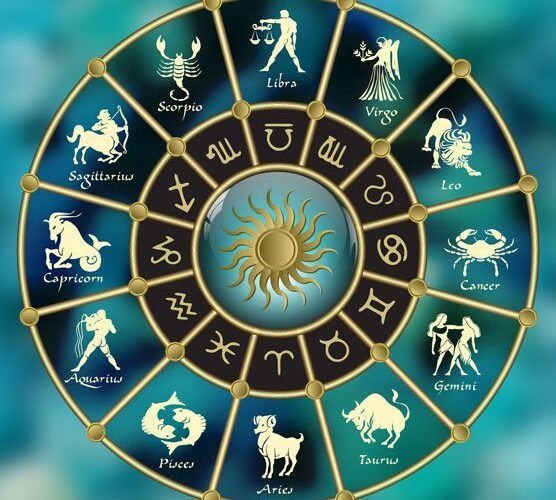Online Astrology Services: Scam or Future Prediction?

Astrology has fascinated people for centuries. From ancient civilizations in India and Mesopotamia to modern-day internet users, humans have looked at the stars to understand their future. In today’s world, astrology has taken a digital leap. Websites, apps, and social media influencers offer horoscopes, birth chart readings, and personalized predictions—all available instantly, often for free or a small fee.
As millions turn to online astrology services, an important question arises: Are these platforms legitimate tools for self-discovery, or do they exploit belief for profit? Let’s break down the facts, experiences, and ethical concerns to help you decide.
What Are Online Astrology Services?
Online astrology services use your date, time, and place of birth to generate astrological charts and interpret them. Some platforms use software to automate the process. Others employ professional astrologers who analyze charts manually. Services typically include:
- Daily, weekly, or monthly horoscopes
- Natal or birth chart readings
- Compatibility analyses
- Career and financial predictions
- Personalized guidance based on planetary positions
Popular platforms like Astrotalk, Co-Star, AstroSage, and Sanctuary have gained massive user bases. Instagram and YouTube also host countless “astro-influencers” who offer quick readings and advice.
Why Do People Use Online Astrology?
People use astrology for different reasons. Some seek clarity in tough times. Others want guidance for relationships or career choices. Many enjoy astrology as a form of self-exploration. Unlike traditional in-person readings, online services offer speed, privacy, and convenience.
During the COVID-19 pandemic, the demand for online astrology surged. Anxiety and uncertainty pushed people to seek answers beyond science and logic. The internet made astrology accessible 24/7. Users didn’t need to book appointments, travel, or wait for results.
Online astrology platforms capitalized on this demand and grew rapidly. They now generate millions in revenue each year. But this growth has also raised concerns about accuracy, manipulation, and ethics.
How Do These Platforms Work?
Most online astrology services follow a simple process:
- User inputs data: Date of birth, time of birth, and birthplace.
- System generates chart: A software tool maps planetary positions.
- Algorithm or astrologer analyzes chart: Depending on the platform, the result comes from a human or a code-based system.
- User receives report: This may include personality traits, life advice, and timelines for key events.
Some apps also push daily alerts like “Avoid major decisions today—Mercury is in retrograde.” Others let users chat with astrologers in real-time for a fee.
Many users find these predictions eerily accurate. However, others claim they received generic, recycled content. This inconsistency has fueled the debate: are these services legitimate or just cleverly packaged entertainment?
Let’s Talk Accuracy
Astrology has never claimed to predict the future with scientific precision. It relies on symbolic interpretation, not cause-and-effect logic. Critics argue that astrology’s predictions fall under the Barnum effect—a psychological phenomenon where people accept vague, general statements as uniquely accurate for them.
However, trained astrologers don’t simply offer cookie-cutter predictions. They interpret complex charts with years of study and experience. They consider transits, progressions, aspects, and houses—far beyond sun signs.
The problem starts when unqualified platforms automate these readings using simplistic algorithms. They remove depth, ignore context, and churn out results for mass consumption. In such cases, the service may mislead rather than enlighten.
So, while astrology itself may hold symbolic insight, not all online astrology services deliver quality or authenticity.
Scam Alerts: Red Flags to Watch
Not every online astrology service runs an ethical operation. Several signs suggest that a platform might exploit belief for profit:
1. Over-Personalized Fear Tactics
Some apps send messages like, “A major accident looms unless you wear this gemstone.” They push users to make panic purchases or pay for “remedial solutions.”
2. Fake Testimonials
Many sites use scripted testimonials and photoshopped images to build credibility. Check for real reviews on platforms like Trustpilot or Reddit before you buy.
3. Pressure to Buy Expensive Packages
High-pressure sales tactics like countdown timers, false scarcity (“only 3 astrologers left”), and special offers for “urgent karma healing” should raise alarms.
4. Hidden Costs and Subscription Traps
Free readings often act as bait. Once users engage, they face upsells, hidden charges, or recurring billing they didn’t authorize.
5. Lack of Transparency
Legitimate astrologers usually show qualifications, methodology, and sample reports. Scammy services hide behind vague claims and flashy graphics.
If a platform uses fear, secrecy, or manipulation to earn money, avoid it.
What About the Ethical Astrologers?
Many astrologers genuinely care about helping people. They treat astrology as a psychological tool—not a fortune-telling device. These professionals offer insightful, personalized interpretations. They often encourage clients to think critically and never promise guaranteed outcomes.
Some platforms vet their astrologers carefully. They provide chat or video sessions with real people. They disclose pricing clearly and set expectations honestly.
Users must choose these platforms carefully. They should research astrologers, read reviews, and ask questions before purchasing a reading. When you treat astrology as a tool—not a crutch—it can offer emotional clarity and self-awareness.
Scientific Community’s View
The scientific community rejects astrology as a valid science. Astrological principles lack empirical proof and reproducibility. Multiple studies have tested astrology’s accuracy and found no statistical correlation between predictions and real-life outcomes.
Despite this, millions still believe in astrology. Why? Because astrology doesn’t promise certainty. It offers meaning, and humans crave meaning. Even if predictions don’t always prove true, the process of introspection can bring peace, guidance, or perspective.
You don’t need scientific approval to find value in a practice. But you should always approach it with awareness and critical thinking.
Astrology as a Wellness Tool
In recent years, mental health professionals have started to view astrology differently. While they don’t consider it therapy, some therapists acknowledge that astrology can start meaningful conversations. Clients often explore identity, fears, and aspirations through their charts.
As long as astrology supplements, not replaces, logical thinking and professional advice, it can act as a wellness tool. Just like journaling, meditation, or tarot, astrology allows people to reflect and realign.
Conclusion: Scam or Future Prediction?
Online astrology sits in a gray area. Some platforms empower users with thoughtful guidance, while others prey on vulnerability for quick money. The answer doesn’t lie in astrology itself but in how people use it—and who provides it.
If you want to explore astrology:
- Choose platforms that use real astrologers
- Avoid sites that use fear or pressure to sell
- Read critically and don’t base big life decisions solely on predictions
- Enjoy the insights, but stay grounded in reality
Astrology won’t reveal your future with 100% certainty. But if you approach it as a mirror for self-understanding rather than a crystal ball, it can enrich your life. Just don’t trust every online service blindly. Because in the digital age, intuition matters more than algorithms.













